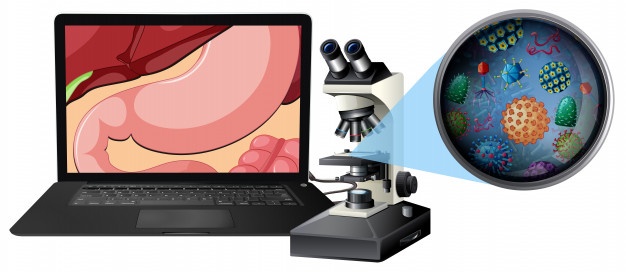New Findings Shed Light on Gut Microbiota Transplantation

An important study conducted by Wang et al. sheds light on the dynamics of transplanted microbiota in aged hosts, and highlights the importance of monitoring the long-term stability of such transplants.
Fecal microbiota transplantation (FMT) has been widely used to restore healthy gut microbiota as part of the treatment of many gastrointestinal diseases.
However, the effect of donor selection on the establishment and long-term stability of transplanted microbiota, especially in aged hosts, has been unclear.
A research group led by Prof. DAI Lei at the Shenzhen Institute of Advanced Technology (SIAT) of the Chinese Academy of Sciences has attempted to clarify this matter. The group's recent research has found that microbiota transplanted from both autologous and heterologous donors could be established in aged hosts and facilitate microbiota restoration after perturbation by antibiotics.
However, the microbiota established by heterologous FMT is not resilient during chemical-induced colonic inflammation, in contrast to that of autologous FMT.
The researchers treated naturally aged mice (20 months old, considered equivalent to approximately 60-year-old humans) with an antibiotic cocktail to disrupt their gut microbiota. The mice were then divided into three groups: those receiving FMT from autologous or heterologous donors and those receiving no FMT (spontaneous recovery).
The spontaneous recovery group could not restore its microbiota diversity and composition by eight weeks. In contrast, both the autologous and heterologous FMT groups achieved restoration of gut microbiota diversity during this time.
The microbiota from autologous and heterologous donors also had long-term effects (eight weeks after FMT) on the metagenomic gene pathways of the microbiota and the gene expression profiles of the host colon.
Furthermore, the researchers disrupted the transplanted microbiota three weeks after FMT by using dextran sulfate sodium (DSS) to induce a self-limiting inflammation of the gut (colitis).
They found that in the aged mice that had received autologous FMT, the transient perturbations in gut homeostasis caused by colitis did not affect the long-term stability of the transplanted microbiota. However, the gut microbiota of mice receiving heterologous FMT failed to withstand the perturbations, suggesting lower resilience.
Know more about the strengths and weaknesses of FMT in our 9th Annual World Meeting on Targeting Microbiota on October 19-21, 2022 in Paris, France.
Image source :Designed by brgfx / Freepik


